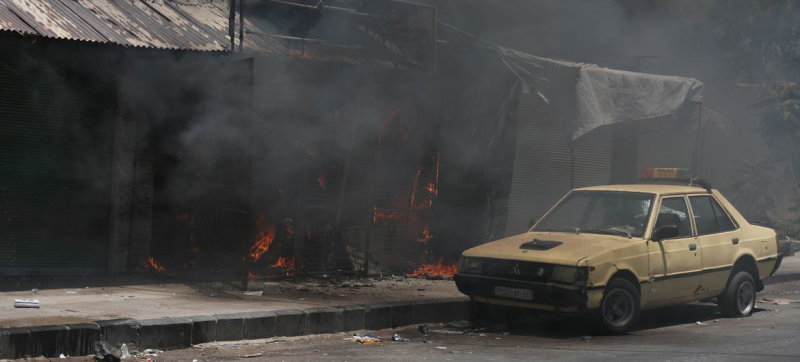- Israel Strikes Tehran with US Support Amid Nuclear Tensions |
- India Sees 9% Drop in Foreign Tourists as Bangladesh Visits Plunge |
- Dhaka Urges Restraint in Pakistan-Afghan War |
- Guterres Urges Action on Safe Migration Pact |
- OpenAI Raises $110B in Amazon-Led Funding |
Sectarian Violence in Syria Displaces Thousands, Hits Healthcare

Hostilities are continuing in Syria’s Sweida Governorate
Deadly sectarian violence continues to displace hundreds of thousands of civilians in Syria’s Sweida Governorate, while the World Health Organization (WHO) confirmed on Friday that attacks on health facilities have killed two doctors.
Since 13 July, around 176,000 people have been displaced from Sweida, according to the UN Office for the Coordination of Humanitarian Affairs (OCHA).
Mostly migrating to neighbouring Dar’a and Rural Damascus governorates, civilians are fleeing violent clashes between Bedouin tribal fighters, Syrian caretaker government forces, and Druze militias.
Meanwhile, in the north of the country, local authorities reported a large explosion struck an ammunition depot in Ma’arrat Tasmarin, Idleb Governorate, on Thursday, reportedly killing six people and injuring at least 140 others.
Although Syrian Civil Defense teams attempted to evacuate people and transfer the injured for medical care, secondary explosions nearby significantly hindered emergency response efforts.
In Sweida, health facilities are under immense strain, with staff operating in extremely difficult conditions, while access to healthcare remains a challenge.
WHO confirmed five attacks on healthcare facilities, including the killing of at least two doctors. The organization also reported obstructions to and targeting of ambulances, as well as the temporary occupation of hospitals.
“We know healthcare must never be a target. Health facilities, patients, and health workers must be actively protected,” said Dr. Christina Bethke, WHO acting representative in Syria, speaking from Damascus to journalists at the UN in Geneva on Friday.
Dr. Bethke said Sweida’s hospitals face shortages of staff, electricity, water, and basic supplies, with the morgue at the city’s main hospital reaching capacity earlier this week.
“Ensuring doctors, nurses, and supplies can reach people safely is not just vital for saving lives; it is a responsibility under international law that all sides must uphold,” she added.
Different groups control different pathways, and poor security conditions are restricting access to Sweida, limiting the ability of the UN and partners to deliver aid to those affected by the violence.
While access to the city remains limited, WHO has been able to deliver vital supplies to health facilities in Dar’a and Damascus governorates, including trauma supplies, essential medicine, and hospital support.
In response to rising violence both in Sweida and the north, UN humanitarian coordinator in Syria, Adam Abdelmoula, launched an extension of the 2025 humanitarian appeal, which is currently less than 12 per cent funded.

